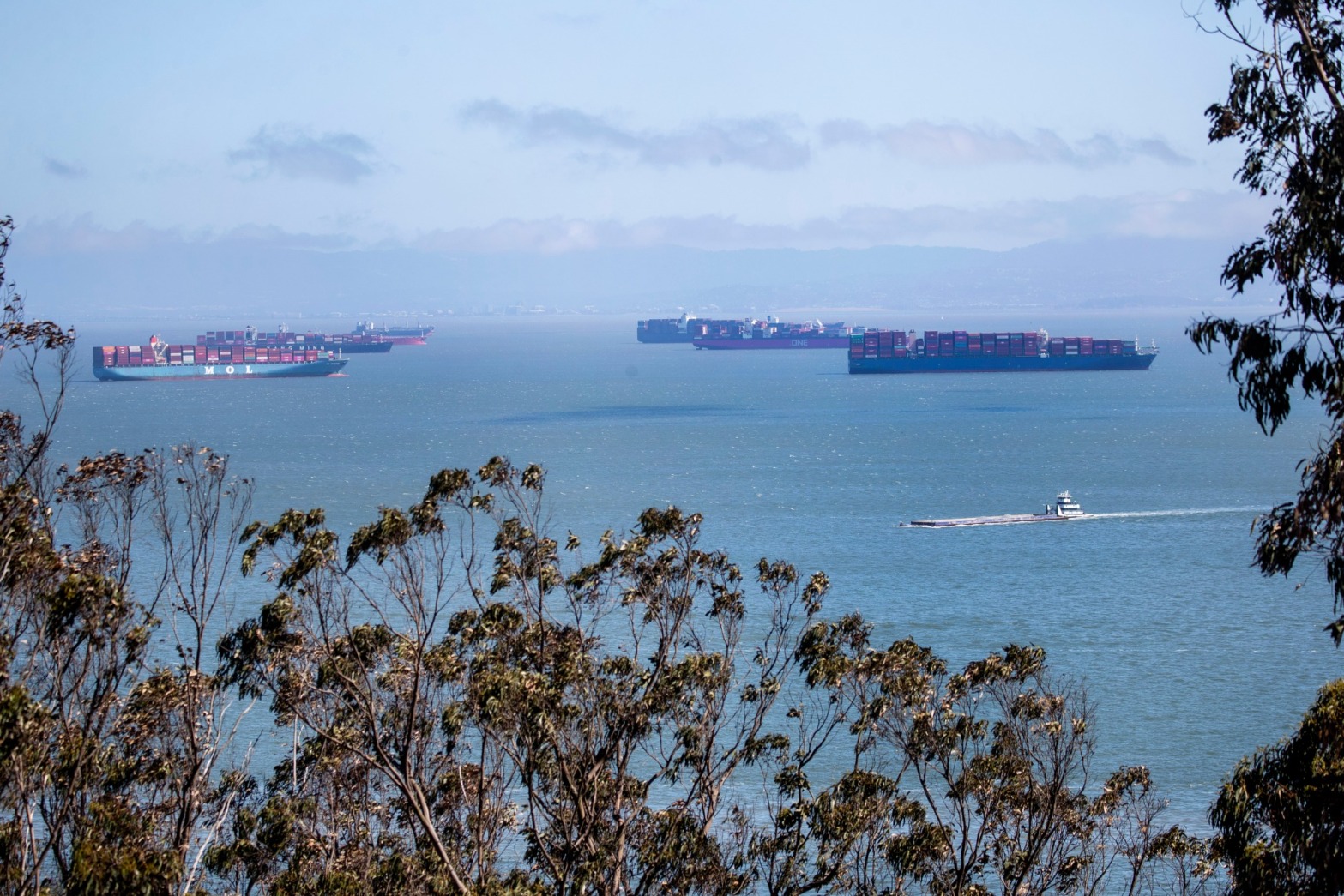When should you mail packages amid shortages and delays

Lockdowns and safety precautions during the pandemic has worsened an already stressed-out global supply chain, leading to shortages in everything from shipping containers to microchips. And there will be a ripple effect on how fast that holiday gift can be delivered to family and friends.
As businesses scramble ahead of the holiday season, shipping services have already released their recommended ship-by dates in order to ensure your packages arrive on time.
The U.S. Postal Service has set deadlines for packages to be delivered before Christmas Day:
- For retail ground service, send packages by Dec. 15
- First-Class Mail Service, send by Dec. 17
- Priority Mail Service, send by Dec. 18.
- For Priority Mail Express Service, send by Dec. 23.
UPS also recommends shipping out packages days to weeks in advance in order to ensure timely delivery.
- Dec. 15 is the last day for ground service,
- Dec. 21 is the last day for UPS 3 Day Select service,
- Dec. 22 is the last day for UPS 2nd Day Air service while those using
- UPS Next Day Air service will have to ship out their items by Dec. 23.
For domestic packages to arrive by Christmas Eve, Fedex’s deadlines include:
- Dec. 15 for FedEx Ground service,
- Dec 21 for FedEx Express Saver and 3Day Freight services,
- Dec. 22 for FedEx 2Day A.M. and 2Day Freight services,
- Dec. 23 for FedEx 1Day Freight, Extra Hours, Standard Overnight, Priority Overnight and First Overnight service.
- Dec. 24 is the last day for FedEx SameDay, Same Day City Priority and SameDay City Direct services.
A global supply chain crisis plagued by shortages and delays in products has led to retailers scrambling to keep shelves stocked. Although the supply chain has grappled with weather-related disruptions and ports being closed or slowed down in the past, Jonathan Gold, Vice President Supply Chain and Customs Policy for the National Retail Federation, said the level of congestion during the pandemic has been unprecedented.
“It’s never been as long as we’ve seen during the pandemic,” Gold said. “Usually it’s just a couple of weeks and you didn’t see the disruption or challenges every step along the way.”
Issues with the global supply chain have also been a long time coming, according to Nick Vyas, professor of clinical data sciences and operations at USC Marshall School of Business.
“The goes back to 30 years when in the pursuit of cheap goods, we became dependent on one region and put all of our eggs in one basket,” he said. “When COVID occurred, we found ourselves with such huge structural deficiencies and realized that our supply chains were not agile and resilient and here we are in a complete mess.”https://94cc8f59e3468261f1ea5decbcaee5b2.safeframe.googlesyndication.com/safeframe/1-0-38/html/container.html
Willy Shih, a business administration professor at Harvard Business School, said U.S. consumers went on a “spending binge,” partially fueled by the stimulus checks, and have been buying goods rather than spending money on services. While August through early November is usually the peak season for spending as retailers prepare for the holidays, Shih said the peak season began in August 2020 and never stopped.
Shih said there were 70 to 80 ships backed up in the Port of Los Angeles and Port of Long Beach last week, with some waiting 10 days or more to unload inventory. The ships contained half a million containers filled with goods, including furniture, shoes, toys and holiday decorations.
“A lot of those goods are at risk of missing the peak selling season right now,” he said.
That means for the holiday season, there could be delays in getting gifts and packages delivered on time.
“It’s gonna take longer,” Shih said. “All of the transportation systems in the US are overwhelmed right now so UPS and Fedex have already taken some steps to try to manage their volumes and they’re trying to add capacity and add seasonal workers, but we’ve been buying a lot of goods and we don’t have enough slack capacity in our infrastructure. Things will be late, they’ll take longer than you think.”
President Joe Biden has attempted to address the supply chain bottlenecks and stranded ships by keeping the Port of Los Angeles running around-the-clock. But Shih says that won’t be enough to solve the problem.
“If you have the ports open 24/7, then you have to have truck drivers willing to go there at 2 a.m. to pick up a container and they need to take those goods to a distribution center that can accept those goods at that time, otherwise you really don’t accomplish anything,” he said. “If you look at this issue, you have to understand it’s a large complex problem that will take some time to clear up.”
As far as holiday shopping goes, Shih recommends being flexible about what you buy your loved ones this year.
“It’s unpredictable whether you’ll be able to get exactly what you want,” he said. “I think flexibility in being able to substitute something that is close may be helpful. If you’re going to order things and ship things early, that will certainly help, but ironically so many people are advising people to ship early that it’s creating congestion in its own right.”
Vyas warns that stocking up on gifts ahead of time could even have negative ramifications.
“People are advising everyone buy early but because the system is dry, we don’t have enough inventory in the pipeline,” he said. “If you continue to create demand, all you’re doing is making the problem worse. My recommendation has been looking at ways to celebrate the holiday and giving things that can be meaningful. Maybe pick up your grandma’s baking recipe or buy something local that doesn’t have to travel thousands of miles from Asia to come here. Let’s start to be creative and relieve the pressure on the system that’s already so shocked.”

